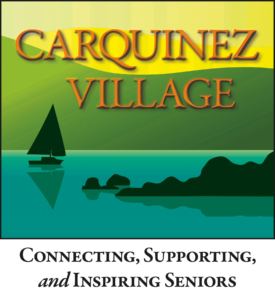By Lois Requist
When I was a kid, older people often told me that I was experiencing the best time of my life, so I should enjoy it. Even then, some part of me wanted to respond, “Really? This is as good as it gets?”
What was my life then? We were poor, and unlike Dwight Eisenhower—who said that when he was a child his family was poor but he didn’t know it—we knew it. I was told what to do by preachers, teachers, and my parents. Their instructions were about hard work and a skepticism toward anything that was fun. We got kudos by studying, going to church, and behaving in school.
The question about what period of our lives is the best has been on my mind for some time. How do we define “best”? One item I read on Google said many people define it as the period when you have the most control of your time. Well, for me, that would be now. I suggest that the analogy often presented of life as a hill with a peak somewhere in the middle may not have much to do with our experience at all.
As children, we have a kind of freedom because we aren’t fully formed. Generally speaking, we don’t have as much responsibility, but neither do we have autonomy. That comes with being responsible for ourselves.
One article I read speaks of a yearning to be older throughout most of our young years and then, past fifty, wishing to be younger. “We wish we had known how good youth was when we had it. We spend all of our lives hankering after another age, another occupation, location, set of circumstances. At first, we look forward toward possibility and freedom and then backwards towards opportunities mishandled. Only in those rare blissful instances where we are totally present and grateful, when everything comes perfectly together, do we acknowledge that now is the best time of our lives.” This according to Matt Richardson, co-founder of Gramr Gratitude Co.
Another factor in our view of what is the best is our youth-obsessed culture. Maybe it is time to get over that, to look at all points of life as unique. A friend of mine recently turned eighty, and as I near that age myself, I think of the richness of my life now, of the depth of friendships honed over decades, and the variety of experiences and knowledge which have accumulated.
Writing in Psychology Today, William R. Klemm, PhD. says, “Modern medicine and the wide pursuit of healthier living styles have enabled many older people to live longer and remain vigorous ad productive in their old age. Yet in this country and many other Western countries, we shun, neglect, and sometimes abuse the old.”
Klemm referred to the CEO of a medical products company, Sue Chen, who believes “older adults are stigmatized as a group.” We are seen as less, less capable, less interesting, “less” not treated as an adjective but as a descriptor of older people. “Children are unintentionally conditioned to have a negative bias about older people,” according to Chen. So, as they age, these same people who thought that older people were somehow “less” may now see themselves also as diminished.
Dr. Klemm says, “Actually one’s later years can be the best years of life. Helen Hayes, at 73, said, ‘The hardest years are between 10 and 70.’ Paul Meyer, upon reaching 70, claimed that ‘Life begins at 70.’ By that time, we all have accumulated a ‘rich reserve’ of life experiences and lessons learned. At 70, you have more choices.”
Later, Dr. Klemm comments, “At 81, my experience is consistent with what Hayes and Meyer concluded. And now, I get to do what I want to do, not what others want me to do. But the biggest advantage of aging, as I see it, is that older people have typically learned more about how to cope with disappointment and adversity and how to squeeze the sweet and good juice out of life.”
Dr. Klemm concludes that “In the absence of debilitating sickness, aging can be a great blessing. There are many things people can and should be doing to make the senior years the best years of their lives. These include eating well, exercising frequently and vigorously, constructing a positive emotional attitude, becoming more active in mental and social life, getting frequent medical checkups, and most of all I think, living with an honorable purpose.”
I would say yes to all of that!







Leave a Reply